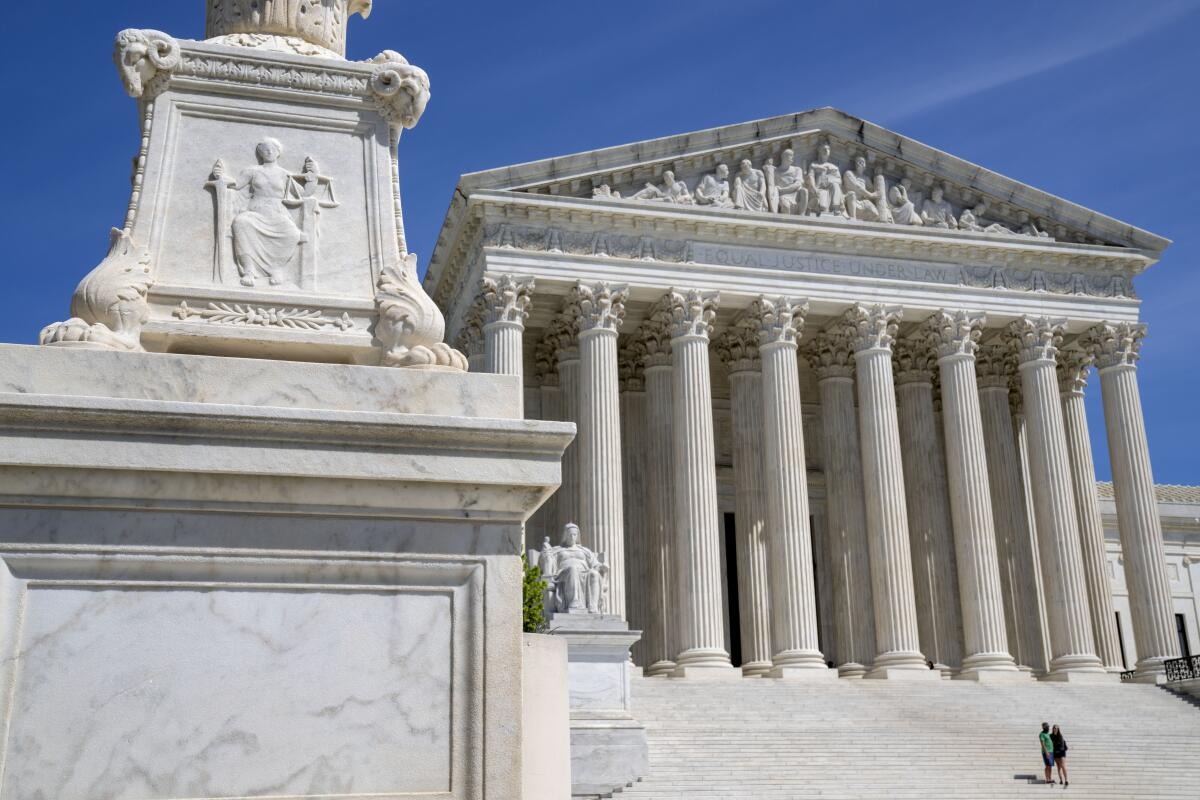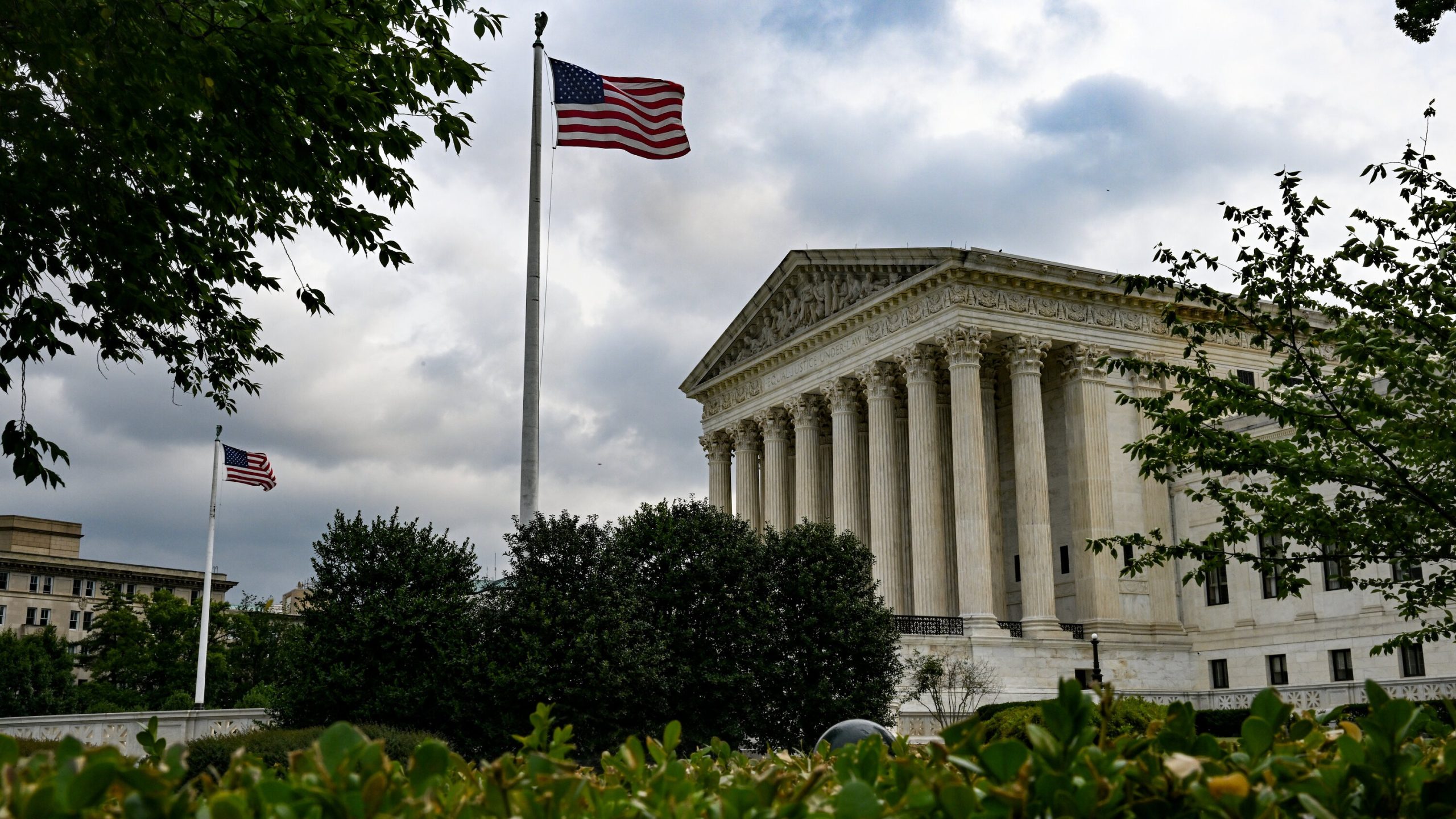On Monday, the Supreme Court will weigh the constitutionality of laws passed in Florida and Texas that aim to limit social media companies’ ability to moderate content, especially regarding conservative speech.
These laws, enacted in 2021 after platforms like Twitter and Facebook banned former President Donald Trump following the Capitol riot on January 6, 2021, are being challenged by tech companies and trade groups.
Facebook and YouTube, represented by NetChoice and the Computer and Communications Industry Association (CCIA), argue that the laws violate their First Amendment rights by restricting their ability to moderate content. Other tech companies, including Reddit, Discord, and Yelp, also oppose the laws.

US Supreme Court (Credits: Los Angeles Times)
The Florida law, for example, prohibits platforms from banning political candidates and restricts “shadow banning,” a practice where certain user content is made less visible.
The Texas law prevents platforms from banning users based on their expressed views and requires companies to disclose their moderation policies.
Proponents of the laws argue that social media companies should be treated like common carriers, such as telecommunications companies, which transmit speech but do not have editorial input.
Critics, including media groups and some tech commentators, argue that the laws threaten free speech and could have broader implications beyond social media.
The cases have political implications, with President Joe Biden’s administration supporting the legal challenges and former President Trump backing the laws. The Supreme Court intervened in the Texas case in 2022, preventing the law from going into effect, and the Florida law was blocked by an appeals court.
While the legal challenges focus on the constitutionality of the laws, a broader question about internet companies’ immunity to user-generated content looms in the background.
Last year, the Supreme Court avoided ruling on this issue. The outcome of these cases could have far-reaching implications for social media regulation and the balance between free speech and moderation on online platforms.
























